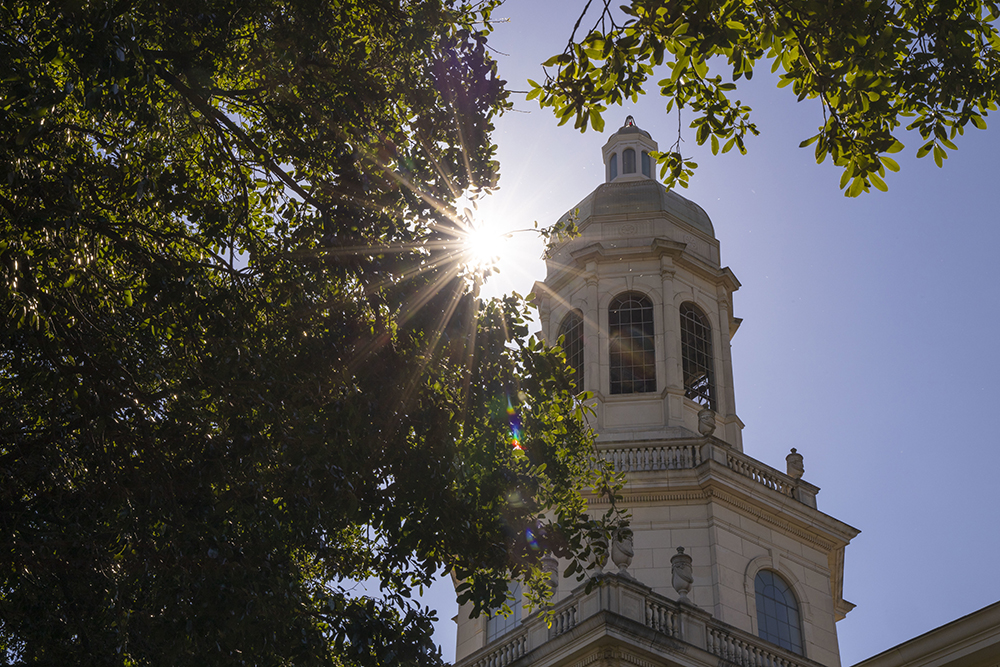Baylor Enhances Postdoc Experience Through Postdoctoral Scholars Program

Baylor University’s mission is to educate men and women for global leadership and service by integrating academic excellence and Christian commitment within the context of a caring community. This mission serves as the foundation for all of the University’s future goals, including the pursuit of Research 1/Tier 1 recognition. The mission’s scope, however, is not limited to students, but shapes the way the university serves a growing segment of the Baylor Family—postdoctoral scholars.
Last year, Baylor announced the formation of a postdoc hiring program, an investment of over $10 million which will more than double the number of postdoctoral scholars at Baylor and provide for resources to serve them. These resources, aimed at meeting professional development goals and facilitating community, are provided through Baylor’s Postdoctoral Scholars Program within the Office of the Vice Provost for Research.
“It’s incredibly exciting to see the significant impact of welcoming more postdoctoral scholars to Baylor,” Kevin Chambliss, Ph.D., Vice Provost for Research, said. “We want to provide them with the level of support that we provide our students and faculty, because they are such an important part of our research enterprise. It is critical to us to provide these resources and a framework for development to help them be successful beyond Baylor.”
Postdoctoral Scholars Program
Baylor Postdoctoral Scholars provides a framework to meet the unique professional and personal needs of postdocs and foster intentional mentorship and growth. Baylor is a member of the National Postdoctoral Association, and follows best practices prescribed by the organization.
“We looked to our peer universities with strong programs, established best practices, and the National Postdoc Association six core competencies to develop our methodology and structure of the postdoc experience here at Baylor,” Stacey L. Smith, Ph.D., director of research development in the Office of the Vice Provost of Research, said. “We like to encourage individualized development plans and provide postdoctoral scholars with tools to work with their mentors to help guide those conversations.”
Venkata Kovvuri, Ph.D., a postdoctoral scholar in Baylor’s CPRIT Synthesis and Drug-Lead Discovery Laboratory says his faculty mentor, Daniel Romo, Ph.D., models that in a number of ways, including by putting him in position to develop communication skills through leadership in conversations with students.
“Dr. Romo puts me in charge as a moderator for our biweekly Chalk Talks and provides feedback that is very helpful,” Kovvuri said. “We talk about that, and other areas for me to grow. He is someone very well-known in our field, and I’ve found he really cares about my career and helping me develop.”
This type of intentional faculty-mentor professional development is an example of the interaction Baylor Postdoctoral Scholars provides a framework to realize even further.
“Within these individualized development plans, we've worked to align resources to support them,” Smith says. “So, for example, if they're trying increase their competency in presenting their research to the community, we've tried to align internal and external resources so that they can be independent in facilitating that.”
Postdoc Association
The intentionality and investment in the cultivation of the postdoc experience at Baylor was also echoed by Blake Thomas, manager of the Postdoctoral Scholars Program, who has worked with postdocs to create an association specifically for them.
“The Postdoc Association is a group that's basically by postdocs and for postdocs,” Thomas says. “The idea is to give them opportunities to network with one another and have access to relevant training opportunities.”
Further, the association is designed to facilitate community for postdocs, who are often in similar life stages as they excel in a high-impact and often unsung role.
“Many postdocs were recently graduate students, so they had graduate student groups that they could meet up with,” Thomas says. “As a faculty member, you have faculty groups, organizations or meetings. Postdocs are sort of in between these two worlds, so it’s important for us as a University to make sure that they are able to find that sense of community.”
Within that community comes many opportunities for growth and friendship.
“There is a desire for more community,” Emily Dolive, a postdoctoral scholar in Baylor’s English department, says, “so it’s been cool to get to know a few other postdocs through these meetings. As the only humanities postdoc at the moment, I’ve been able to meet others from STEM fields, and we’re all in the same place professionally, asking the same questions in different fields. We’ve talked about ways we can help grow each other in our careers and how we can share in growing this program for future postdocs.”